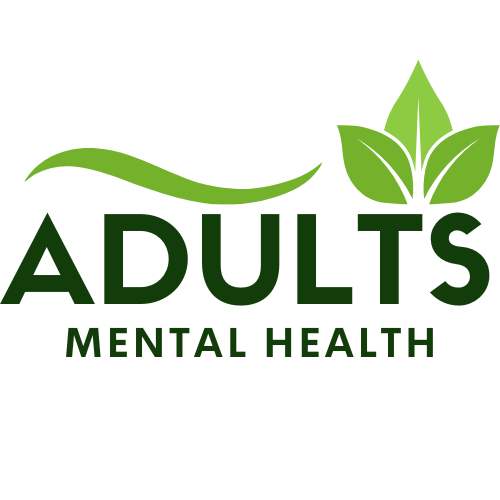Cognitive Health: Boost Your Brain Power and Mental Clarity
Why Cognitive Health Matters
Your brain is the control center of your existence, shaping everything from what you do to how you feel. The brain affects everything you do and is foundational to unlocking a sharper mind and没什么好看的小说和 a life you love. Cognitive health is the function of the brain to think, learn, recall, and make insights and judgments. A strong mind improves concentration, creativity, and even your ability to bounce back from stress. Looking after your mind and cognitive function is crucial not only for maintaining brain performance but for preventing issues in the first place. In this post, we dive into what cognitive health is, why it is important, and actionable ways to take care of it for lasting mental acuity.
What Is Cognitive Health?
Cognitive health includes the brain’s ability to perform functions such as memory, attention, emotional control, thinking, and problem-solving. It’s not only about preventing conditions like dementia but about ensuring you remain mentally sharp to get the most out of your days. Cognitive health is vital for independence, productivity, and well-being, according to the CDC.
Key Components of Cognitive Health
- Memory: The retention and recall of information.
- Attention: Focusing without getting distracted.
- Executive Function: The ability to plan, decide, and solve problems.
- Language Skills: Communicating thoughts clearly.
- Emotion Regulation: Managing feelings and emotions effectively.
Impaired cognitive health may manifest as forgetfulness, lack of concentration, or mood swings, affecting home, work, and personal endeavors.
How Cognitive Health Impacts Your Everyday Life
1. Work and Productivity
A sharp mind enhances focus and creativity at work. Workers with robust cognitive health excel at problem-solving and multitasking. A 2023 study found that professionals practicing mindfulness improved focus by 20% and reported higher job satisfaction.
2. Relationships and Social Connections
Cognitive health influences communication and empathy. A strong brain processes social cues and fosters rewarding connections, while cognitive decline may lead to confusion or social withdrawal.
3. Emotional Well-Being
The brain regulates emotions. Weak cognitive health may contribute to anxiety or depression, while a resilient brain handles stress better. Research shows daily brain games like puzzles can lower stress hormone levels by up to 15%.
4. Physical Health Connection
Your mind and body are interconnected. Cognitive health affects behaviors like exercise and eating habits, which support brain function. A 2022 study found regular physical activity improves memory and cognitive flexibility by increasing blood flow to the brain.
Factors That Affect Cognitive Health
Lifestyle Choices
- Diet: A diet rich in omega-3s, antioxidants, and vitamins (e.g., Mediterranean diet) nourishes the brain.
- Physical Activity: Regular exercise enhances neuroplasticity, the brain’s ability to form new connections.
- Sleep: Poor sleep impairs memory and focus. Aim for 7–9 hours of quality sleep nightly.
Environmental and Social Factors
- Stress: Chronic stress damages brain cells and impairs memory.
- Social Activity: Social connections prevent cognitive decline by keeping the brain active.
- Mental Stimulation: Learning new skills or hobbies keeps neurons vibrant.
Genetics and Aging
While genetics can’t be changed, lifestyle can mitigate risks for diseases like Alzheimer’s. Aging naturally slows cognitive pace, but mental skills can be maintained with effort.
Practical Advice for a Sharper Mind
1. Adopt a Brain-Healthy Diet
- Fatty Fish: Salmon and mackerel provide omega-3s that repair brain cells.
- Berries: Blueberries and strawberries offer antioxidants with anti-inflammatory effects.
- Nuts and Seeds: Walnuts and chia seeds provide vitamin E, slowing memory loss.
2. Stay Physically Active
Exercise boosts the brain. Aim for 150 minutes of moderate aerobic activity weekly, like brisk walking or cycling. Yoga and strength training enhance cognitive flexibility.
3. Challenge Your Brain
- Solving puzzles (crosswords, Sudoku).
- Learning a language or instrument.
- Reading books or creative writing.
4. Prioritize Sleep and Stress Management
Establish a relaxing bedtime routine. Practice mindfulness or meditation using apps like Headspace or Calm to reduce stress.
5. Stay Socially Connected
Join a book club, volunteer, or spend time with friends and family to keep the brain engaged and reduce cognitive decline.
Real-World Example: Cognitive Health
Sarah, a 45-year-old marketing manager, struggled with attention in meetings. She adopted a brain-healthy lifestyle: eating more fish and greens, walking 30 minutes daily, and practicing mindfulness. Within three months, her focus, mood, and productivity improved significantly, proving small changes make a big difference.
FAQs About Cognitive Health
What is cognitive health?
Cognitive health is the brain’s ability to think, learn, remember, and manage emotions effectively.
What can I do for a healthy brain?
Eat a healthy diet, exercise, sleep well, reduce stress, and stay mentally active.
Can cognitive decline be reversed?
Some age-related decline is normal, but lifestyle changes can slow or improve certain cognitive functions.
What is the impact of stress on cognitive health?
Chronic stress raises cortisol levels, damaging brain cells and impairing memory and focus.
Conclusion: Seize Control of Your Cognitive Health
Understanding cognitive health and its impact on your life is the first step to optimizing your mental potential. A healthy diet, exercise, mental stimulation, and social engagement can boost brain function and quality of life. Start with small steps, like a 10-minute walk or a crossword puzzle. Your brain will thank you.
Call to Action
How do you keep your brain agile? Share in the comments below or sign up for our newsletter for more mental health tips!

